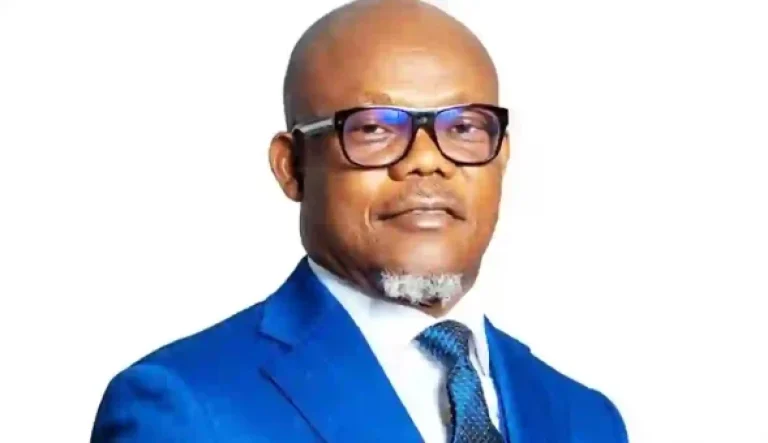
Within President Bola Ahmed Tinubu’s camp, notably among his close allies and party elders, displeasure with his style of government and several of his policy initiatives is developing rapidly, only 154 days after he took office.
Our correspondent reports that the situation is worsening because the President’s allies and party elders are reportedly unable to communicate with him, share their insights, or express their displeasure with his actions and inactions.
There have been rumours that President Tinubu’s government is being hijacked by a conspiracy that controls access to him, much to what is alleged to have happened to former President Muhammadu Buhari.
Leaders of the All Progressives Congress (APC), particularly in the Southwest and Northwest, Muslims, and Yoruba elders, young professionals, and traditional rulers are just few of the many groups of dissatisfied stakeholders.
Nigerians have been put through varied degrees of economic hardship due to a number of measures enacted by President Tinubu since he took office. Just a few days ago, Afenifere, the foremost Yoruba social and cultural organisation, brought the widespread insecurity in the country to the notice of the government and demanded that action be taken to reverse the disturbing trend.
Word on the street is that the president’s supporters think he should take a cautious first step inward with an eye towards connecting with the people and alleviating their miseries.
Many in the political sphere, including some in the ruling APC and regional stakeholders, feel that President Tinubu has unfairly favoured the Southwest geo-political zone with his appointments.
Some party leaders, particularly those in the Southwest and Northwest, have reportedly decided to remain silent and distance themselves from the presidency because they are unhappy with the lack of consideration given to their political interests in all of his appointments thus far.
The Southwest and Northwest Muslim stakeholders in the ruling party are rumoured to be unhappy with Tinubu’s appointment methods.
Even though their votes helped Tinubu win the presidency, they claim they were treated unfairly.For example, some in the APC are worried that President Tinubu has betrayed the party elders who have been by his side since 1999 and the other party members who fought beside him in the primaries and general election.
Party insiders close to the presidency hinted to our correspondent that the new clique in Aso Villa, which decides who receives what and who sees the President, could be more damaging to government than what operated during the immediate previous administration.
In addition, this paper has credible information that some of Tinubu’s allies are seriously unnerved by the excruciatingly high cost of living caused by the removal of the fuel subsidy, the exchange rate, and other indices that are making life unbearable for Nigerians.
Concerns were voiced that the continued economic downturn will undermine the Southwest zone’s long-term integrity in terms of governance, in addition to damaging the legitimacy of the current administration.
Former Osun and Ogun state governors Chief Bisi Akande and Aremo Segun Osoba, as well as other elder statesmen and Yoruba sons and daughters, who served in the previous government, are a topic of conversation within the APC.
According to sources close to the party, Chief Akande, Osoba, and others who were once considered Tinubu’s Man Friday are now mostly treated as outsiders by the current administration, despite the fact that our correspondent has noticed that some of them have purposefully kept a distance from the government.
Chief Akande, widely believed to be one of the president’s closest associates, allegedly complained to party stalwarts that he hasn’t had a chance to address important problems with Tinubu or relay the feelings of Nigerians to him in recent times.
One of the things the octogenarian has been complaining about to his close friends is that the administration has made some major choices without even consulting him.
The former governor of Osun State, for example, was rumoured to have pretended not to know that Senator Ajibola Basiru was chosen to be the party’s national secretary, and a party source claimed that Akande did not know about Tinubu’s decision to use former Kano State Governor, Umar Ganduje, as APC’s national chairman.
It’s possible that even the former governor of Ogun State, who was an early elder to praise President Tinubu for having the courage to abolish fuel subsidy, has withdrawn support.
The former managing director of the Daily Times was praised for his optimistic prediction that the decision to remove subsidies was well-thought-out and would break the monopoly and greed of oil barons. However, he is reportedly struggling to make sense of the current economic situation.
Members of the APC Governor’s Advisory Council (GAC) in Lagos State are also in distress, and not just because of recent appointments. The children of one of them had asked him, “Is this all that your Tinubu has to offer?” and he had been saddened by the question.
According to another reliable source within the party, members of the ruling party in the Southwest are not pleased with the transfer of federal power to the region, especially to Tinubu.
For instance, the APC in Oyo State isn’t trying to hide the fact that it feels it’s been treated unfairly in terms of ministerial nominations.An anonymous party member remarked, “What belonged to the chapter in terms of ministerial appointment was ceded to a member of another party, who in turn picked his aides even outside the party.” There is no indication that these individuals have any intention of rejoining the party, much less taking any steps towards doing so.
The APC in the states of Ekiti, Ondo, and Ogun share this sentiment. Some members of the ruling party, however, are confident that President Tinubu would soon turn the tables, arguing that whatever hardships the Yoruba elders face at the hands of Tinubu’s administration are justified.
One loyal party member claimed that the bulk of the elders have benefited unfairly and “they cannot face the president to tell him the truth.”
However, another APC member said that President Tinubu should be given more time, arguing that “it is too early to criticise his government based on ethnic sentiments or economic performance.” He claimed that while it’s possible that some APC members were disappointed by Tinubu’s appointments since he favoured more Christians than Muslims, “they are not enough reasons to fault or condemn Mr. President.”
A further comment he made was as follows: “The problem is that Tinubu is merely attempting to run away from the Muslim-Muslim ticket extortion. But if you look at it critically, the Muslims of the Southwest and Northwest, whose votes got Tinubu president, aren’t benefiting at all, whereas the Christians of the South South and Southeast are. Tinubu’s offer of the Ministry of Works and FERMA to Southeast is inconceivable given the hostility he encountered there.
Northerners, he said, are wrong to say that Tinubu is working to “Yoruba-ize” the government. If you look closely, you’ll notice that many of the most important jobs in Buhari’s administration are located in Katsina State. Also during Jonathan’s rule, the South Southerners ran the show. However, such is not the case with Tinubu in charge.
Concerning the economy, Dr. Kunle Olajide, a former General Secretary of the Yoruba Council of Elders (YCE), has stated that the current economic crisis is a worldwide problem from which Nigeria is not immune.
He urged his fellow APC members to put national interests ahead of personal ones while making selections. He promised that the current administration will permanently improve conditions in Nigeria.
Yoruba Ronu Leadership Forum President Akin Malaolu believes the current state of the economy proves the Tinubu administration is incapable of cleaning up the mess it has made.
“We have studied his economic policies and his grandstanding and we have been proven right after critical assessments were done, that both President Tinubu and his advisers are ignorant of the processes they are driving,” he stated.
It was President Tinubu’s first mistake to pay no attention to our comparative advantages before the energy industry and our currency were liberalised. What he should have protected first—energy independence with subsidies and the Naira as the national currency—he instead destroyed. First and foremost, he should have prioritised productivity, especially in the areas of energy security, domestic energy production, expanding agricultural operations, protecting export platforms, and fighting instability in a reasonable order.
In addition, Yoruba Ronu emphasised the importance of industrialization, funding the private sector, establishing foundries, and launching machine tools companies as means to boost productivity and create jobs. It went on to say that developing this comparative advantage will help the economy, spur growth in medium and small-sized businesses, and generate export revenue.








